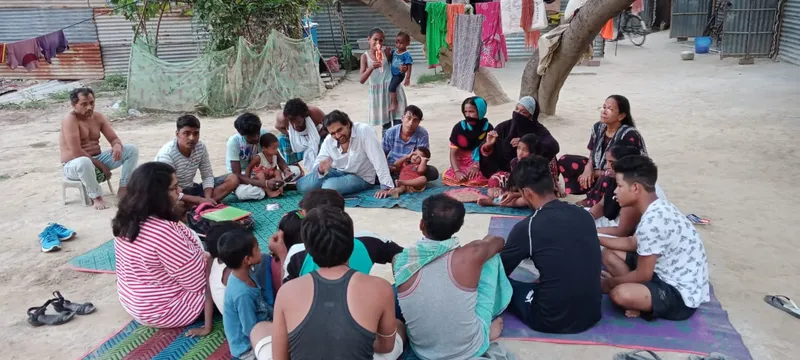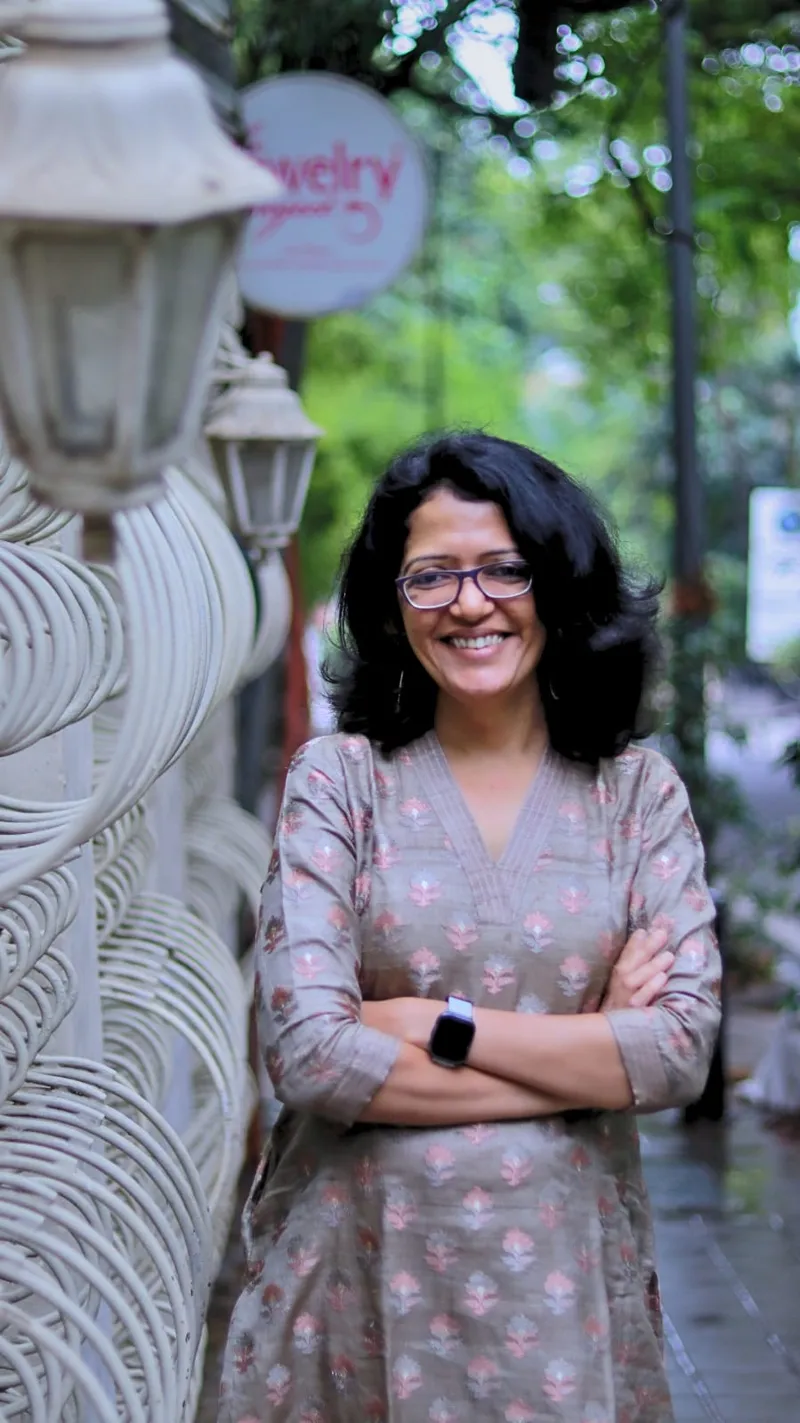The concept of non-violent communication is driving social change through empathy
Nonviolent communication, a 60-year-old approach to hearing and expression founded by an American psychologist, is being used to empower social change today.
Ten-years-ago, Manasi Saxena walked into a non-violent communication (NVC) practice group meeting in Hauz Khas, Delhi, where she was asked a question that convinced her to make NVC her life’s work -“What are your needs?”
This simple inquiry of a fundamental right and its honest expression is at the heart of the communication language and practice developed by American psychologist, mediator, and teacher, Marshall Rosenberg.
Rosenberg conceptualised NVC from the principles of person-centered therapy, as a communication language built on honestly expressing your deepest feelings and needs to someone, and being able to empathetically listen to theirs.
As a conflict resolution method, NVC doesn’t always work with the goal to end disagreements, but rather build empathy, an equal sense of belonging and ‘being heard’ for one’s needs and feelings that practitioners believe are universal; such as sustenance, connection, community, freedom, autonomy, security, etc.
Today, NVC concepts are emerging as powerful tools to incite personal and interpersonal transformation by giving more agency to individuals to recognise their needs and find multiple ways to fulfill them.
Resolving conflicts
In February 2020, days after communal riots broke out in North east Delhi destroying homes, property, and lives, Saxena literally stood between two opposing groups where tensions were escalating and asked them, “What are the needs driving your ire and what can we do to resolve them in a way that no one is left out?”
According to Saxena, who runs Encompassion Foundation in Delhi, everyone at every moment was coming from a place of needs that were not met. And following a binary approach of categorising views as right/wrong, good/bad left them with just enough responses to meet some people’s needs, while many others feeling unheard and unrepresented.
A group of slum dwellers in Gokulpuri had lost their homes and had no food or milk for their children for days. They did not have shelter, access to clean water, and toilets. When she checked in with the group of people in an adjacent area who lived in constructed homes, she found that beneath their explicit demands to have the first group removed from the premises, was the fear of open defecation and the need for safety and hygiene for their children and the elderly.
“So, irrespective of whether I personally agreed with the strategies this group used to express its needs or not, we decided that the action we would take would be cognisant of everyone’s concerns and not detrimental to any individual or group,” she says.
“For instance, we discussed if an alternative strategy could be to raise funds and build toilets and shelters. We also attended to those in need of food because hunger by itself is a longing for empathy and encapsulates many elemental human needs--for empathy, care, acknowledgement, belonging, connection, learning, and growth,” she says.
While the Covid-19 lockdown came into effect days later derailing many of these plans, Saxena was able to de-escalate the situation from turning violent and continue relief work online.

Trainer Manasi Saxena uses NVC in community engagement with with migrant labourers in the Delhi/NCR region.
In the past, she has taken her NVC training to a de-addiction centre in Noida and a community project with migrant labourers in the Delhi/NCR region.
"As a concept, nonviolent communication’s goal is to respond, rather than react and communicate and take action based on what one’s needs are, especially in difficult situations,” says Ranjitha Jeurkar, NVC trainer and Founder at Connext Coaching and Facilitation, which works with individuals and organisations in the use of NVC in communication and capacity building.
“Every emotion we feel is feedback for what we need–in a situation, from a person, peer, leader, organisation or society,” she adds.
Addiction of any kind commonly results in feelings of anger, hatred, envy, lust, says Martin (name changed), a 26-year-old lawyer and one of the participants at Saxena’s workshop at the de-addiction centre.
"In NVC, we start with a mindfulness exercise that grounds us and brings us to observe our bodies and feelings in the present. We then work with cards that give us an overview of the universal feelings and needs that all of us can relate to. This helped me identify and regulate my emotions,” he says.
Role of NVC in non-profits
Jeurkar frequently employs NVC concepts in capacity building for individuals and organisations working in the social sector--a space that she says is burdened by the conditioning of putting other people’s needs before one’s own.
“The work I do with non-profits supports them in recognising their own needs and finding ways of having them met, in order to have a more effective working relationship with the causes and communities they stand for,” she says.

Ranjitha Jeurkar, NVC trainer and founder at Connext Coaching.
Jeurkar recently organised a workshop for a group of nuns from the Little Sisters of the Poor, who take care of the homeless and elderly, around the country.
“They were faced with many seniors who were dealing with the grief of not having their family with them. They wanted to know how they could receive these people, especially when this void and loneliness manifested in ways that might be challenging,” says Jeurkar.
At her sessions, the social workers learned how to listen and engage with these seniors empathetically, by being aware of what needs of theirs had to be met (such as emotional safety, appreciation, closeness and community), and meeting them in ways that didn’t rely on just their families.
NVC also helps strengthen non-profits by teaching them how to bring in people with varying political, cultural, and social worldviews to consciously create robust and progressive working systems, which are otherwise suppressed in organisations run by people with similar values and politics.
The power of listening
Pranjal Tiwari, an NVC-based trainer and coach from Puducherry conducted listening circles during the second wave of the pandemic along with practitioners from across the country. At these meetings, participants could tap into the comfort of community, share their challenges and mourn their losses in a safe space. Tiwari, who has trained under Centre for Nonviolent Communication trainer L'Aura Joy, has also facilitated restorative circles, a community conflict resolution practice aimed at building and restoring relationships through equal opportunity sharing and listening.
“Listening is an important part of NVC. It is a skill,” says Tiwari. “In essence, it is being able to fully take in what another person is saying, and repeating it to them in a way that fulfills their need to be heard, seen, acknowledged, and respected. In restorative dialogue, we listen to move away from blame, understand each other on the level of needs and respond from that space,” he adds.
At listening circles, the feelings that came up the most were those of anxiety, frustration, helplessness, and confusion, emerging from a sense of powerlessness and isolation. “We recognised a need for autonomy and choice,” he says.
“Being heard automatically calmed people at the level of their bodies. Their postures relaxed. And listening helped everyone see that above and beyond the conflict situations they were facing, they were united by the same fear of uncertainty and need for safety that the world so badly needed then."
(The story was updated to correct factual errors)
Edited by Megha Reddy






